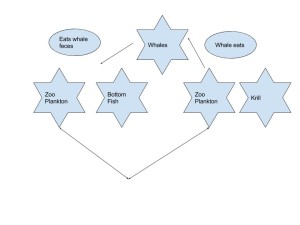- Is it more important to be a good person or to perform good acts (virtue ethics vs. action ethics)?
I believe that it is more important to perform good acts than to be a good person. I feel like performing acts are what makes you a good person. If you are a good person and do nothing, how does that result in you being a good person? I believe that good acts are what the world itself needs right now. Without it, I believe that the world will continue to spiral into a disarray that will end in another world war. With good acts, I believe that good people will arise. Within that thought, I do agree that good acts can be done by people who aren’t good people, but at the end of the day, I do believe that good people are defined by good acts done by people. I believe thoroughly that good people could also not do anything good other than things for themselves, and not for other people. Therefore, good acts lead to good people.
- Do the pleasure and pain of non-human animals matter as much as the pleasure and pain of humans (speciesism)?
Being an owner of a cat and dog as well as lifetime owners of cats, hamsters, dogs, fish and even geckos, I am a huge advocate for animals and animal rights. I believe that their pain and pleasure matter just as much as humans. I believe that it goes back to the earlier question of virtue ethics vs action ethics. I believe that any person who abuses are mistreats animals, has no ethics whatsoever. Animals and things that can not completely defend themselves as a human can not be considered lesser because of the fact that they rely on other things and humans to survive. I also believe that animals are important to the lives of humans. The help the environment and a lot of them are able to give humans comfort as well as assist them in other ways, such as K-9 units in the cops or service animals. Someday we may need to rely on them for more things than we do now, so it is always important to keep their pleasure and pain in the focus of our lives.
- Is my own life worth more than the lives of others, the same, or less (selfishness vs. altruism)?
This question has come up a lot in my personal life in recent years. My mother had passed away, there would come up the question of my problems being more important than others and I relate this to the meaning of lives. I believe that all lives are equal. No matter the thought of if someone is smarter than someone else, or if they’ve accomplished more than another person, I thoroughly believe that everyone is of equal importance. This follow along the thought that people of higher wealth may believe that they are more important. Or if someone has invented something or have done more than another person. A lot of time, homeless people are looked at as unimportant and less of life than others, but we all came from the same place and will eventually all die, so what’s the point of looking at people different. It’s just a waste of energy and focus.

